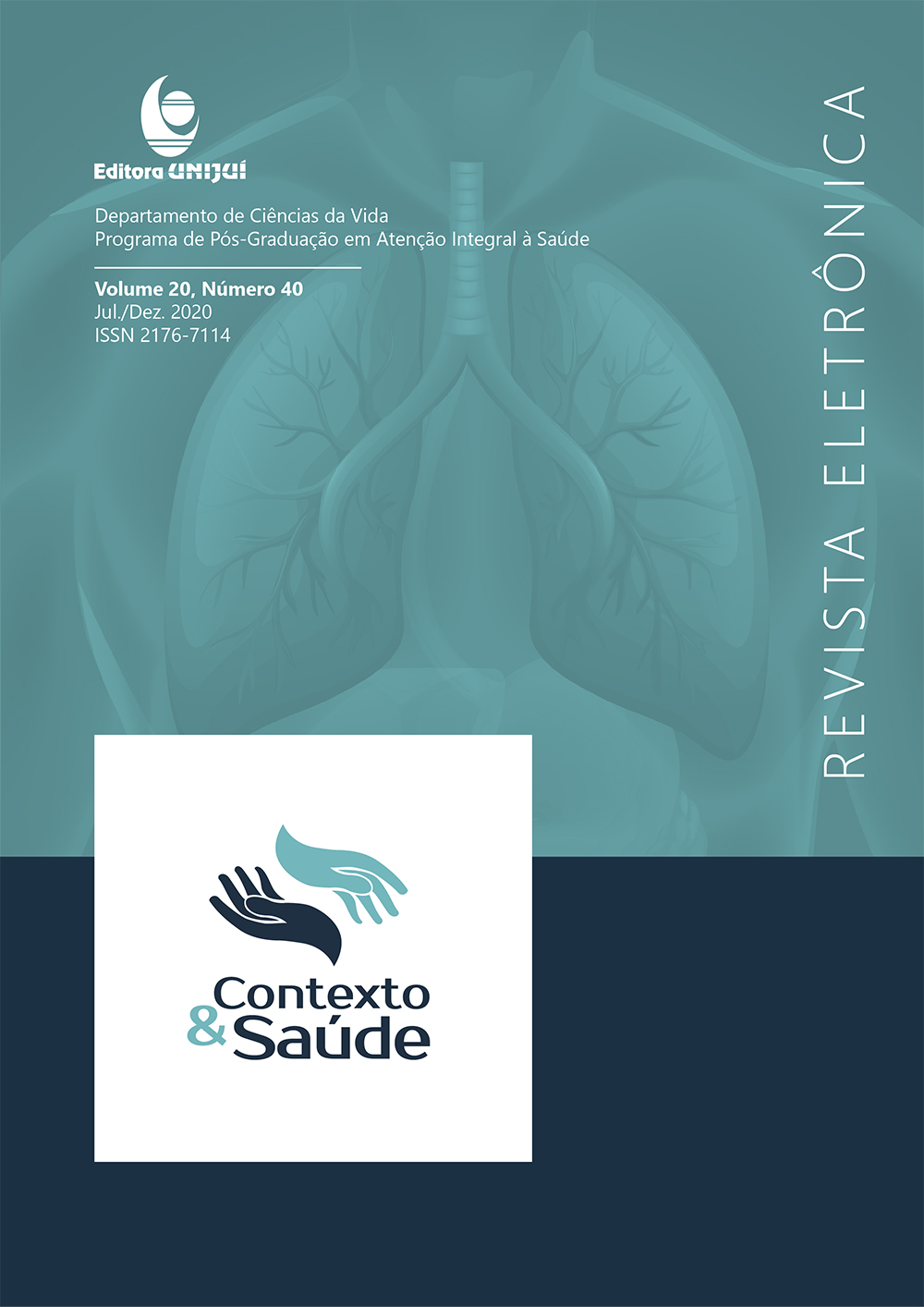PROPRIEDADES ANTIOXIDANTES E EFEITOS ANTIMICROBIANOS DA KOMBUCHA: REVISÃO DA EVIDÊNCIA CIENTÍFICA
DOI:
https://doi.org/10.21527/2176-7114.2020.40.244-251Keywords:
Kombucha tea. Antioxidant activity Antimicrobial activity.Abstract
Kombucha is a beverage produced from the fermentation of teas by symbiotic cultures of bacteria and yeasts. This beverage gained popularity due to its health benefits and its antioxidant properties that may be greater than that of unfermented infusions. Kombucha also has antibacterial activity against pathogenic Gram-positive and Gram-negative bacteria, with the main antibacterial component being acetic acid. Thus, the aim of this integrative review is to evaluate scientific production on the antioxidant properties and antimicrobial effects of kombuchas. The integrative review was based on systematic steps, in the Scopus and ScienceDirect databases. The searches followed the inclusion criteria: studies that addressed the antioxidant and antimicrobial properties of kombucha, available in full in English, Portuguese and Spanish, with no limited publication period. The searches followed the inclusion criteria: studies that addressed the antioxidant and antimicrobial properties of kombucha, available in full in english, portuguese and spanish, with no limited publication period. Excluded: theses, dissertations, reviews (systematic, narrative and integrative), opinion articles and editorials. 18 articles were included, 7 articles determined antibacterial activity and observed that kombuchas have greater effects than unfermented infusions. Most articles determined the antioxidant activity of kombuchas from different substrates, mainly green and black teas. All articles showed an increase in the antioxidant activity of kombuchas during fermentation. Thus, kombucha can be a healthy alternative for maintaining levels of free radicals and fighting pathogenic microorganisms for those who consume it.
Downloads
Published
How to Cite
Issue
Section
License
By publishing in Revista Contexto & Saúde, authors agree to the following terms:
The works are licensed under the Creative Commons Atribuição 4.0 Internacional (CC BY 4.0) license, which allows:
Share — to copy and redistribute the material in any medium or format;
Adapt — to remix, transform, and build upon the material for any purpose, including commercial.
These permissions are irrevocable, provided that the following terms are respected:
Attribution — authors must be properly credited, with a link to the license and indication of any changes made.
No additional restrictions — no legal or technological measures may be applied that restrict the use permitted by the license.
Notes:
The license does not apply to elements in the public domain or covered by legal exceptions.
The license does not grant all rights necessary for specific uses (e.g., image rights, privacy, or moral rights).
The journal is not responsible for opinions expressed in the articles, which are the sole responsibility of the authors. The Editor, with the support of the Editorial Board, reserves the right to suggest or request modifications when necessary.
Only original scientific articles presenting research results of interest that have not been published or simultaneously submitted to another journal with the same objective will be accepted.
Mentions of trademarks or specific products are intended solely for identification purposes, without any promotional association by the authors or the journal.
License Agreement (for articles published from September 2025): Authors retain copyright over their article and grant Revista Contexto & Saúde the right of first publication.

